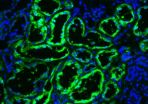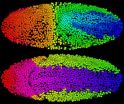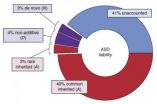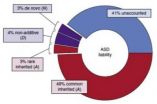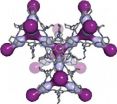(Press-News.org) The report – "Understanding the Rise in Fitness to Practise Complaints from Members of the General Public" – is published today.
An increase in complaints has been seen across the UK, which suggests wider social trends rather than localised issues. A large number of complaints did not progress because the issues raised could not be identified, which suggests that the GMC is receiving complaints outside its remit. According to the report, this points towards problems with the wider complaint-handling system and culture.
While the report does not point to any specific causes for the increase in complaints, it does clearly identify a number of trends which have contributed to an environment in which the public are more prone to making complaints about their doctors.
Clinical care remains the largest source of complaints, but there has been a significant increase in complaints about doctor-patient communication: this highlights the importance of the doctor-patient relationship.
The report identified that the media has a role to play in the increase in complaints. While there was no direct link between media coverage of high profile medical cases and spikes in complaint traffic, the authors of the report suggest that media portrayals of both the GMC and the medical profession may influence how and why complaints are made.
This may be due to the GMC's own success in raising its profile, but the report shows that name recognition and having a basic understanding that the GMC 'has something to do with doctors' does not result in a wider understanding of the GMC's remit – which may in turn have resulted in the number of complaints that could not be pursued because it was not the GMC's job to do so.
While the reputation of the medical profession remains positive overall, the report identifies that negative press coverage may be 'chipping away' at this reputation and resulting in an increased number of people making 'me too' complaints to the GMC.
The authors of the report also acknowledge the role of social media in the increase in complaints. Social media encourages people to discuss their experiences in public forums, and it allows information to be more easily accessed and exchanged.
The report also identifies that patients have greater ownership of their health, are becoming better informed, are developing higher expectations and are treating doctors with less deference than they might have done in the past.
Dr. Julian Archer, lead author of the report of Director of CAMERA, said: "The process of compiling this report has produced some fascinating findings. They show that the forces behind a rise in complaints against doctors are hugely complex and reflect a combination of increased public awareness, media influence, the role of social media technology and wider changes in society.
"We found that while a better awareness of the GMC has a role to play in the increase in complaints, it did not necessarily result in an increase in complaints the GMC were in a position to deal with."
He added: "The report also indicated that there is much to do to improve the wider complaint-handling system, so that complaints made by the general public about their doctors are directed to the appropriate authorities."
Commenting on the research Niall Dickson, Chief of Executive of the GMC, said: "We have no evidence that the rise in complaints against doctors reflects falling standards – what this research underlines is that patients are more willing to complain and find it easier to do so. Doctors too are more willing to raise concerns about their colleagues. The challenge for the GMC and other organisations is to make sure that anyone who has a concern or complaint can find their way to the right organisation to deal with it. For the vast majority of patients and relatives, that will mean local resolution. The large number of complaints we receive that are not for us, suggests that the current system is not working as well as it should."
INFORMATION:
Why are more people in the UK complaining about their doctors?
Report analyses the rise in doctor fitness to practise complaints made by the public to the General Medical Council
2014-07-21
ELSE PRESS RELEASES FROM THIS DATE:
UEA research shows oceans vital for possibility for alien life
2014-07-21
Researchers at the University of East Anglia have made an important step in the race to discover whether other planets could develop and sustain life.
New research published today in the journal Astrobiology shows the vital role of oceans in moderating climate on Earth-like planets.
Until now, computer simulations of habitable climates on Earth-like planets have focused on their atmospheres. But the presence of oceans is vital for optimal climate stability and habitability.
The research team from UEA's schools of Maths and Environmental Sciences created a computer ...
New findings show strikingly early seeding of HIV viral reservoir
2014-07-20
BOSTON – The most critical barrier for curing HIV-1 infection is the presence of the viral reservoir, the cells in which the HIV virus can lie dormant for many years and avoid elimination by antiretroviral drugs. Very little has been known about when and where the viral reservoir is established during acute HIV-1 infection, or the extent to which it is susceptible to early antiretroviral therapy (ART).
Now a research team led by investigators at Beth Israel Deaconess Medical Center (BIDMC) in collaboration with the U.S. Military HIV Research Program has demonstrated that ...
Metabolic enzyme stops progression of most common type of kidney cancer
2014-07-20
PHILADELPHIA -- In an analysis of small molecules called metabolites used by the body to make fuel in normal and cancerous cells in human kidney tissue, a research team from the Perelman School of Medicine at the University of Pennsylvania identified an enzyme key to applying the brakes on tumor growth. The team found that an enzyme called FBP1 – essential for regulating metabolism – binds to a transcription factor in the nucleus of certain kidney cells and restrains energy production in the cell body. What's more, they determined that this enzyme is missing from all kidney ...
Scientists map one of most important proteins in life -- and cancer
2014-07-20
Scientists reveal the structure of one of the most important and complicated proteins in cell division – a fundamental process in life and the development of cancer – in research published in Nature today (Sunday).
Images of the gigantic protein in unprecedented detail will transform scientists' understanding of exactly how cells copy their chromosomes and divide, and could reveal binding sites for future cancer drugs.
A team from The Institute of Cancer Research, London, and the Medical Research Council Laboratory of Molecular Biology in Cambridge produced the first ...
Marmoset sequence sheds new light on primate biology and evolution
2014-07-20
HOUSTON – (July 20, 2014) – A team of scientists from around the world led by Baylor College of Medicine and Washington University in St. Louis has completed the genome sequence of the common marmoset – the first sequence of a New World Monkey – providing new information about the marmoset's unique rapid reproductive system, physiology and growth, shedding new light on primate biology and evolution.
The team published the work today in the journal Nature Genetics.
"We study primate genomes to get a better understanding of the biology of the species that are most closely ...
Speedy computation enables scientists to reconstruct an animal's development cell by cell
2014-07-20
Recent advances in imaging technology are transforming how scientists see the cellular universe, showing the form and movement of once grainy and blurred structures in stunning detail. But extracting the torrent of information contained in those images often surpasses the limits of existing computational and data analysis techniques, leaving scientists less than satisfied.
Now, researchers at the Howard Hughes Medical Institute's Janelia Research Campus have developed a way around that problem. They have created a new computational method to rapidly track the three-dimensional ...
Common gene variants account for most genetic risk for autism
2014-07-20
Most of the genetic risk for autism comes from versions of genes that are common in the population rather than from rare variants or spontaneous glitches, researchers funded by the National Institutes of Health have found. Heritability also outweighed other risk factors in this largest study of its kind to date.
About 52 percent of the risk for autism was traced to common and rare inherited variation, with spontaneous mutations contributing a modest 2.6 percent of the total risk.
"Genetic variation likely accounts for roughly 60 percent of the liability for autism, ...
Genetic risk for autism stems mostly from common genes
2014-07-20
PITTSBURGH—Using new statistical tools, Carnegie Mellon University's Kathryn Roeder has led an international team of researchers to discover that most of the genetic risk for autism comes from versions of genes that are common in the population rather than from rare variants or spontaneous glitches.
Published in the July 20 issue of the journal "Nature Genetics," the study found that about 52 percent of autism was traced to common genes and rarely inherited variations, with spontaneous mutations contributing a modest 2.6 percent of the total risk. The research team — ...
A noble gas cage
2014-07-20
Richland, Wash. -- When nuclear fuel gets recycled, the process releases radioactive krypton and xenon gases. Naturally occurring uranium in rock contaminates basements with the related gas radon. A new porous material called CC3 effectively traps these gases, and research appearing July 20 in Nature Materials shows how: by breathing enough to let the gases in but not out.
The CC3 material could be helpful in removing unwanted or hazardous radioactive elements from nuclear fuel or air in buildings and also in recycling useful elements from the nuclear fuel cycle. CC3 ...
New method for extracting radioactive elements from air and water
2014-07-20
LIVERPOOL, UK – 20 July 2014: Scientists at the University of Liverpool have successfully tested a material that can extract atoms of rare or dangerous elements such as radon from the air.
Gases such as radon, xenon and krypton all occur naturally in the air but in minute quantities – typically less than one part per million. As a result they are expensive to extract for use in industries such as lighting or medicine and, in the case of radon, the gas can accumulate in buildings. In the US alone, radon accounts for around 21,000 lung cancer deaths a year.
Previous ...
LAST 30 PRESS RELEASES:
Asteroid samples offer new insights into conditions when the solar system formed
Fecal transplants from older mice significantly improve ovarian function and fertility in younger mice
Delight for diastereomer production: A novel strategy for organic chemistry
Permafrost is key to carbon storage. That makes northern wildfires even more dangerous
Hairdressers could be a secret weapon in tackling climate change, new research finds
Genetic risk for mental illness is far less disorder-specific than clinicians have assumed, massive Swedish study reveals
A therapeutic target that would curb the spread of coronaviruses has been identified
Modern twist on wildfire management methods found also to have a bonus feature that protects water supplies
AI enables defect-aware prediction of metal 3D-printed part quality
Miniscule fossil discovery reveals fresh clues into the evolution of the earliest-known relative of all primates
World Water Day 2026: Applied Microbiology International to hold Gender Equality and Water webinar
The unprecedented transformation in energy: The Third Energy Revolution toward carbon neutrality
Building on the far side: AI analysis suggests sturdier foundation for future lunar bases
Far-field superresolution imaging via k-space superoscillation
10 Years, 70% shift: Wastewater upgrades quietly transform river microbiomes
Why does chronic back pain make everyday sounds feel harsher? Brain imaging study points to a treatable cause
Video messaging effectiveness depends on quality of streaming experience, research shows
Introducing the “bloom” cycle, or why plants are not stupid
The Lancet Oncology: Breast cancer remains the most common cancer among women worldwide, with annual cases expected to reach over 3.5 million by 2050
Improve education and transitional support for autistic people to prevent death by suicide, say experts
GLP-1 drugs like Ozempic could cut risk of major heart complications after heart attack, study finds
Study finds Earth may have twice as many vertebrate species as previously thought
NYU Langone orthopedic surgeons present latest clinical findings and research at AAOS 2026
New journal highlights how artificial intelligence can help solve global environmental crises
Study identifies three diverging global AI pathways shaping the future of technology and governance
Machine learning advances non targeted detection of environmental pollutants
ACP advises all adults 75 or older get a protein subunit RSV vaccine
New study finds earliest evidence of big land predators hunting plant-eaters
Newer groundwater associated with higher risk of Parkinson’s disease
New study identifies growth hormone receptor as possible target to improve lung cancer treatment
[Press-News.org] Why are more people in the UK complaining about their doctors?Report analyses the rise in doctor fitness to practise complaints made by the public to the General Medical Council
